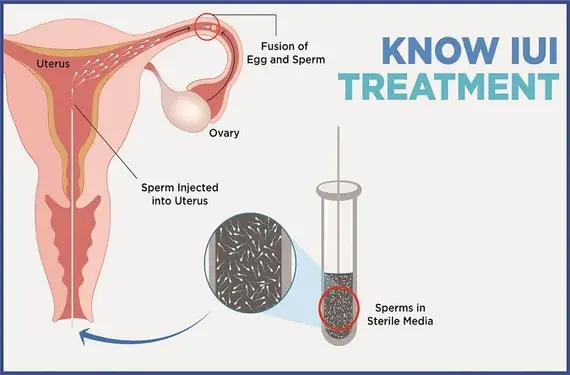
IUI treatment can be a valuable option for couples facing infertility, a challenging and emotional experience often filled with doubt and uncertainty. When traditional methods of conception don’t work, couples often turn to assisted reproductive technologies (ARTs) for help. One such option is Intrauterine Insemination (IUI), a relatively simple and affordable procedure that can significantly improve the chances of conception.
What is IUI
IUI involves placing sperm directly into the uterus, bypassing the natural journey through the cervix and vagina. This is especially helpful for couples struggling with issues like sperm count, cervical mucus, or ovulation.
A Personalized Approach
At Diwya Vatsalya Mamta IVF Center in Patna, a leading fertility center in Bihar, we believe every couple is different. That’s why our fertility doctor, Rashmi Prasad, takes the time to understand your situation, tests to find out the cause of infertility, and recommends IUI if it’s suitable for you.
Understanding the IUI Process
The IUI process typically involves the following steps:
- Ovulation Monitoring: To determine the optimal time for insemination, a woman’s ovulation cycle is monitored using ovulation kits, blood tests, or ultrasound scans.
- Sperm Preparation: The male partner provides a semen sample, which is processed to concentrate and prepare the sperm for insemination.
- IUI Procedure: During the IUI treatment a thin catheter is inserted through the vagina and cervix into the uterus. The prepared sperm sample is then gently injected into the uterus.
- Post-IUI Care: After the procedure, the woman may be asked to rest for a short period. There are typically no restrictions on activities after IUI.
Success Rates of IUI
The success rates of IUI vary depending on several factors, including the underlying cause of infertility, the woman’s age and the number of IUI cycles attempted. Generally, the success rates of IUI are higher for women under the age of 35 and for couples with unexplained infertility or mild male factor infertility. Multiple IUI cycles may be necessary for some individuals to achieve pregnancy.
Potential Side Effects of IUI
IUI, offered by an experienced IVF doctor in Patna, is generally considered a low-risk procedure with minimal side effects. However, some women may experience mild cramping or spotting after the procedure. These symptoms are usually short-lived and often don’t require medical attention.
Frequently Asked Questions About IUI
- Is IUI painful? IUI is typically not painful. Some women may experience mild discomfort during the procedure, but it is generally tolerable.
- How many IUI cycles are recommended? The number of IUI cycles needed to achieve pregnancy varies. Your healthcare provider will discuss the appropriate number of cycles based on your circumstances.
- Can I have sex after IUI? There are no restrictions on sexual activity after IUI.
- When can I take a pregnancy test after IUI? It is recommended to wait at least two weeks after IUI before taking a pregnancy test.
- Is IUI effective for all types of infertility? IUI may not be suitable for all types of infertility, such as severe male factor infertility or tubal factor infertility.
Conclusion
IUI treatment is a journey, not just a procedure. It’s a journey filled with hope, patience, and the unwavering belief that your dream of parenthood will come true. By understanding the IUI process, success rates, potential side effects, and frequently asked questions, you can embark on this journey with confidence and clarity. If you’re considering IUI, remember: your story is unique, and so is your path to parenthood. Trust in the process, believe in yourself, and let the magic of IUI unfold.




